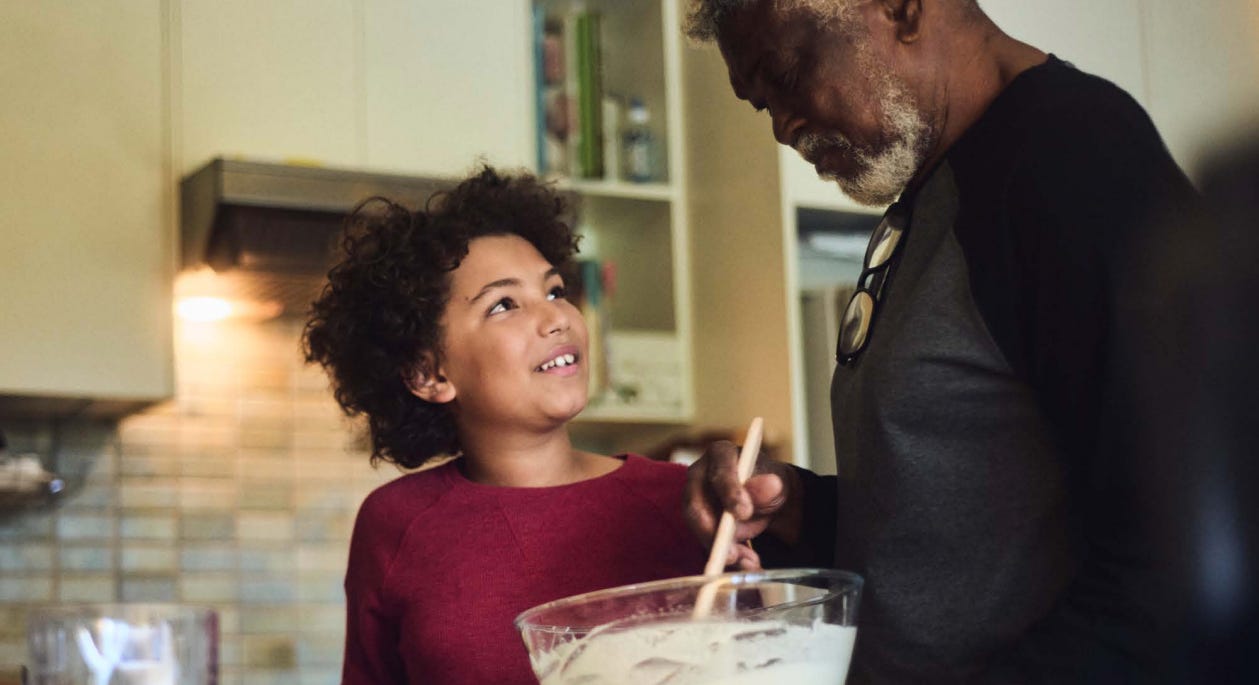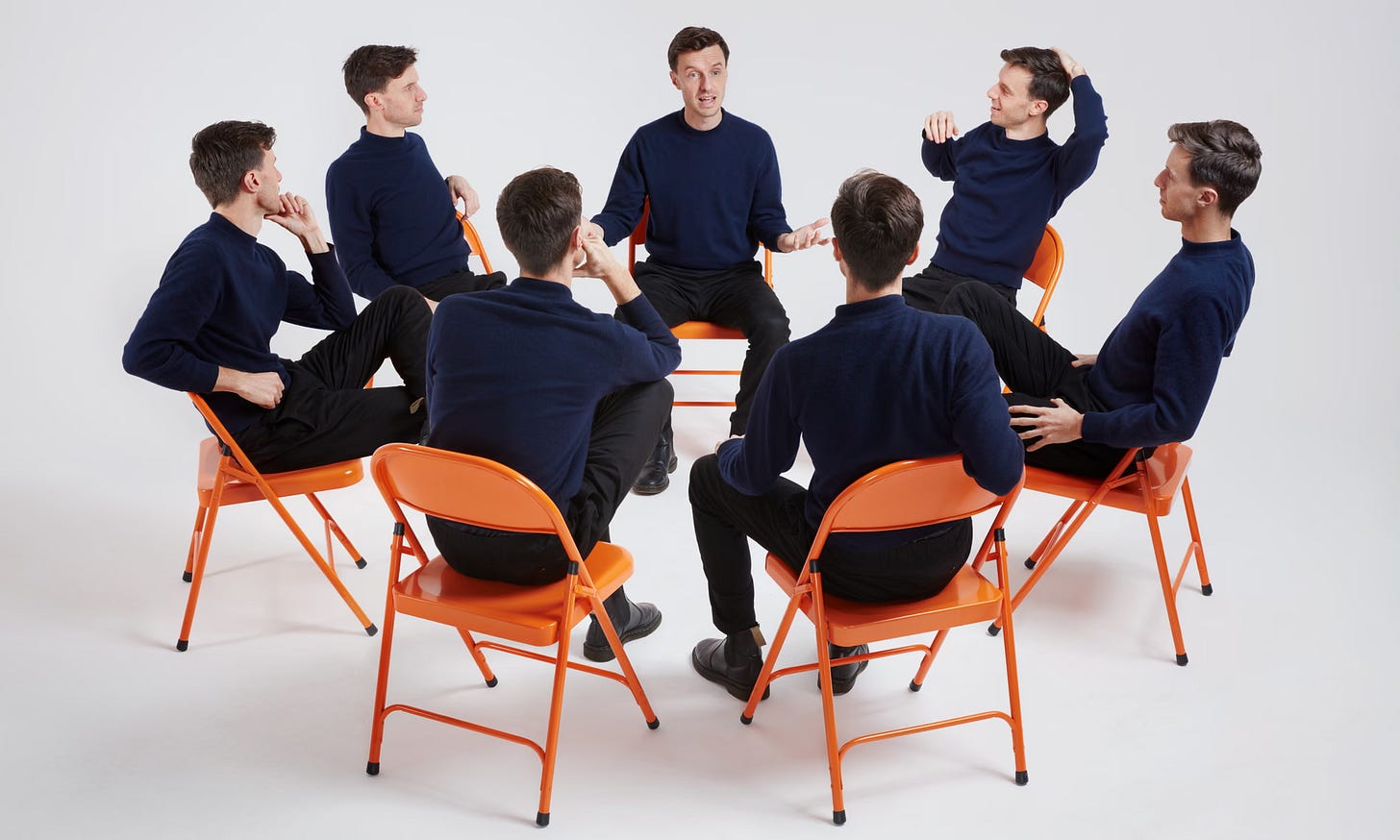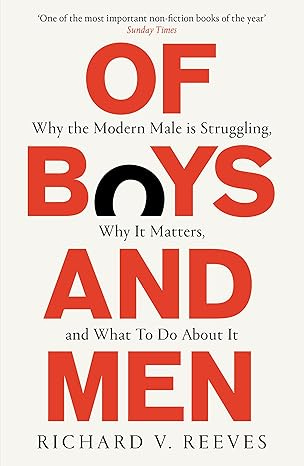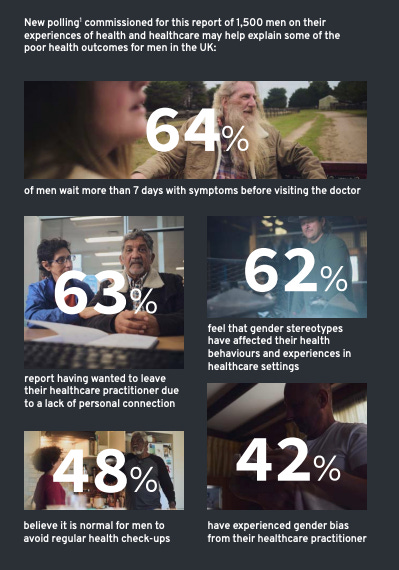It's okay to talk about men.
Why we can't avoid talking about men and masculinity.
There aren’t many positive messages about men in public discourse at the moment. It focuses on toxicity, extremes, violence, sexism and stories of men taking dramatic swings towards radicalism.
We can’t ignore the reasons this discourse has started, or the very real pain, struggle and frustration they’ve been borne from. You’d be hard pressed to find a woman that doesn’t have some sort of a negative story about a man, whether that’s objectification, stalking, assault or something else. You’d also be hard pressed to find a man that hasn’t had negative experiences with other men; bullying, intimidation, violence, abuse. We know, and see clearly, the negative impact men have had on people.
We can’t ignore that the system and society most of us live within and under has been created by men, to benefit men, and abused by men. All of these things are true and present, and it’s no wonder it’s caused such deep anger and fear which has given rise to this prevailing narrative that men are the problem, and something to be feared.
But we have fallen into a repetitive spiral where this is the only discourse about men. Because we talk about Andrew Tate and we’ve watched Adolescence, we often seem to believe that we’re having a good conversation on masculinity. But both of these things focus on only a small subset of men, a small group of extreme behaviours which just isn’t most men’s reality. We rightly focus on the bad guys, the villains, the abusers, the predators, rapists and warmongerers. But we wrongly choose to only focus here and have created a falsely overwhelming narrative.

A lot of good men are getting lost in the noise, while we talk in generalisations and paint an entire gender with broad brushstrokes. We’ve heard people use phrases like “fuck the patriarchy” or roll their eyes and say “ugh, men” flippantly and collectively to talk about billions of men. It might be intended as a joke, but it undermines men and it undermines the true sentiment behind the frustration that people legitimately feel.
Even the term “men” itself is incredibly broad, and one that misses the diversity in men; those of different classes, sexualities, races, life experiences, abilities and more. Too many fall into the trap of believing that all men have never been oppressed because the majority of oppressors are men. But what we forget is that the spoils of those at the top are not shared equally among men, and there are a huge portion of them suffering under this same system.
The deeper danger here is that this is causing a further hesitance in men to voice any of their own struggle or pain, to demand better rights for men or to talk about masculinity.
Men get shot down, pushed back into their box, and made to feel like their issues aren’t important in the face of historic oppression that other groups have faced for so long. And that’s the other thing that we sadly seem to have forgotten in today’s society; that two things can be true at once and more than one belief can be held.
We can support men and women. Talking about masculinity and men doesn’t negate the support that we can hold for women. Indeed, the two go hand-in-hand. But too quickly things descend into tit for tat and verbal barbs being exchanged.
We once wrote about needing better paternity laws in the UK, and a woman commented underneath saying “we’ll give you better paternity leave when you give us equal pay.” James, writing on the same subject, and about bereavement leave after the loss of a baby, received the comment “Surely, you didn’t mean to say men’s rights?” It’s this “us versus them” mindset that keeps furthering divides and keeps men silent.
We also once shared a photo of three white men on a podcast talking about male suicide, only to receive a comment saying “more white men on a podcast”. This judgement is ridiculous and flies in the face of the progress we have seen elsewhere across society. We criticise men who do speak up, but then collectively gasp when another man takes his own life, asking why he didn’t do more to speak. It’s a weirdly hypocritical, self-perpetuating problem.
Men are struggling in a lot of areas. If we were to look at things like pay or career progression, it would be clear as day that women, on average, suffer when compared to men. But if we were to look at something like the suicide rate or premature death, men are struggling far greater than women. I don’t use this to snapback or get into the “tit for tat”, but simply to show that depending on the angle we choose or the statistic we focus on, we can find something to suit our argument on why one group needs more help than another. Which is exactly why we should focus on all groups, all struggles.
Sometimes that means one group will need support more than another. Sometimes that will mean equity, not equality. Sometimes that will mean we need to put our own needs to one side. But this should never mean that one side has to stay silent forever.
We’re incredibly aware of the optics of this. A man saying that everyone should be able to voice their experiences whenever they want, when for so long, so many groups haven’t been allowed to do that. We know this can read like men just waltzing in here, asking for a platform to voice struggle, telling everyone that it’s their right. We don’t want this to read like men only just discovering oppression now that it’s impacting them.
But we also know it’s so important that we don’t let the conversation around men drop. Too many men are dying prematurely around the globe from things that are preventable and avoidable. Too many families and friendship groups are losing husbands, dads, brothers, uncles, sons, partners and colleagues before their time.
It’s been ingrained into men for so long that they don’t have a right to feel struggle, pain or weakness. We’re not men if we express vulnerability. And so they stay silent, choosing things like suicide over asking for help.
We acknowledge the historic role that man has played in the society we live in. We acknowledge the fear and threat of violence that many women feel. We acknowledge that some men and boys are being lured in by violent and seductive influencers. But we can’t make this the only conversation about men, and we certainly can’t use it as a stick to beat men into silence when they try to talk about their struggle.
The good news is that the conversation about men is developing. More men are advocating for men and more women are becoming allies for men’s issues too. It’s important that as much as possible, men lead the charge for showing the good in men, and role modelling to others.
Some practical stuff that we as men can start to do immediately, today:
Join men only groups, get support from other men and support other men too.
Encourage your workplace to create a men’s group.
Take the first, brave step in your friendship group by reaching out and checking in with a mate on the deep stuff beyond the day-to-day. What are they struggling with? Where do they need support? What’s keeping them up at night? Opening the door for others can be more of a lifeline than you know.
Advocate for men’s issues you are passionate about; mental health or physical health. Share your story and make people aware of what men experience.
Call out unfair judgment towards men and share a man’s POV without dismissing what the other person has said.
Learn more about the struggles of others. Communities historically have had to galvanise and organise to support themselves. Men can learn from this.
Give these other communities support and a platform. For example, we’ve been actively learning from women on their experiences on the menopause, and engaging with creators who share this content to further their reach. When we support other groups, it has a knock-on effect.
Share your voice and express how you feel. Too many men remain silent on issues at home or at work. Take your space and be heard.
It’s good to talk about men and the more we do it, the better the world is going to be for everyone.
Two thoughts can be true at once. Two beliefs can be held. More than one group can be supported at the same time.
Let’s keep calling out the bad actions of those that need to be held accountable. Let’s acknowledge the things that need to be acknowledged; sexism, unequal opportunities, oppression. And let’s make sure that the people who need a voice, support or a platform are given one, regardless of who they are or the gender they hold.
Here are some people we recommend following who are helping to change the narrative on men:
Lewis Hackney and his Truuman Podcast:
Pasco Ashton and his Men’s Circle, which he spoke to the Guardian about here:
Richard V. Reeves, who wrote the excellent Of Boys And Men:
Dr. Zac Seidler, Global Director of Research at Movember, who helped lead on The Real Face of Mens Health report:
Elliott Rae, who co-hosts the wonderful To Be A Boy podcast:
This is only a snapshot of some of the men working to change the conversation on masculinity, and certainly isn’t everyone.
We’ll be doing a followup post soon with all the brilliant individuals, blogs, podcasts, groups and communites in this space to act as a bit of a “Men’s Directory”. Let us know if you know of something that should be included!







I think this article has perfectly summarised my experiences over the last few years when it comes to how we talk about men. I've heard so many times "Men have had their time, it's time be silent and listen" or the flippant "male privilege" being used as short hand for either being the only group that has any form of privilege or that everyone man experiences this privilege equally.
I do feel like here is an Apex Fallacy happening in discourse around men. We look at the 1% of men - be that boardroom members, CEOs, or even murderers - and treat the remaining 99% of men with the same brush. As you've pointed out in the article; we are not a monolith.
Society seems to wonder why young men are being pulled into toxic influences like Tate... but we're not asking the (real) question: why are young men being "pushed" towards these? It starts with how openly we negatively talk about men today.